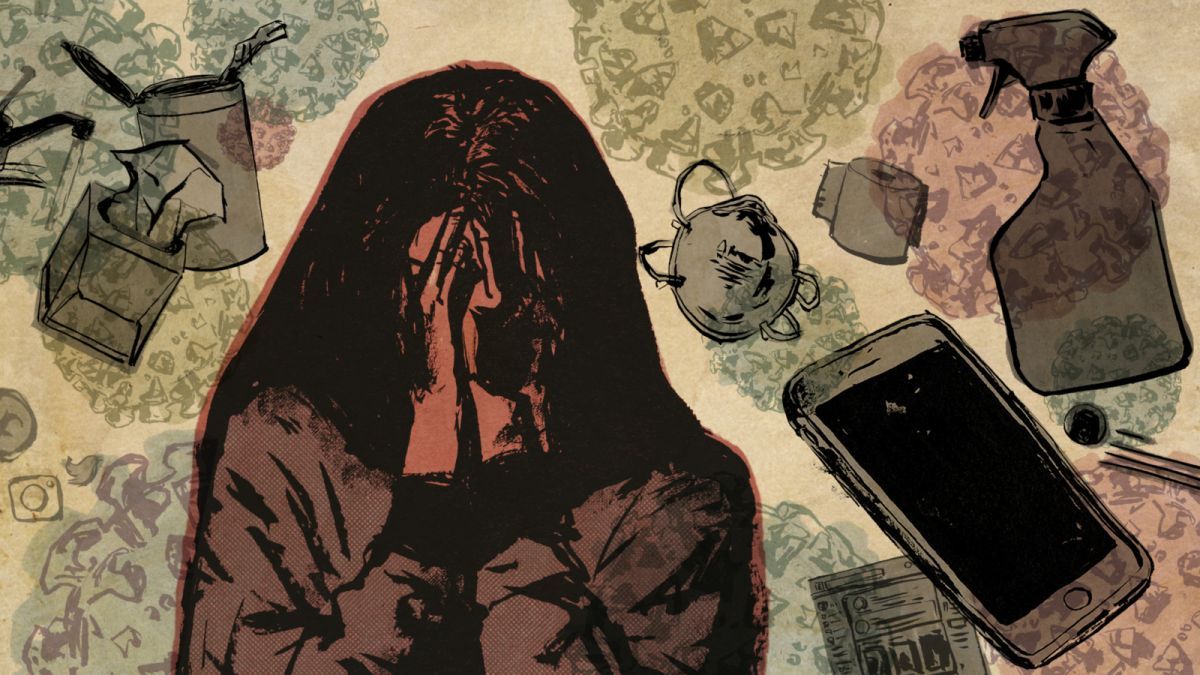Will the COVID-19 crisis cause a spike in suicides?

A few minutes every morning is all you need.
Stay up to date on the world's Headlines and Human Stories. It's fun, it's factual, it's fluff-free.
With COVID-19 exacting a heavy toll on populations and national economies, many have speculated that countries around the world will experience increases in rates of suicide.
While a few self-inflicted deaths around the globe have been linked to fears over the pandemic, psychologists are concerned that a resulting economic downturn is likely to cause a more dramatic spike in rates.
It’s too early to know precisely what the aftershocks of the pandemic will be, both in terms of the global economy and its mental health effects. Modern history has few relevant examples more recent than the 1918 influenza pandemic, generally known as the Spanish Flu. Perhaps, though, previous economic slumps can shed light on the current moment.
Suicides due to coronavirus fears
In early April, Adriana Panayi, M.D., writing for Scientific American, discussed the likelihood that the COVID-19 crisis would lead to an increase in suicides. With most of the world’s population under lockdown, Panayi warned, “The weakening of social networks disrupts normal social lives and feelings of worthlessness emerge.”
The doctor discussed a number of well-publicized suicides that had already been linked to fears of the virus.
In February, the death of an Indian father named K Balakrishna was attributed to “fear that he was infected with the dreaded Coronavirus.” Similarly, the March suicide of a British teenager named Emily Owen became a viral story after it was reported that her death was due to similar fears.
Perhaps, though, the death that provides the most ominous harbinger for additional suicides was that of German finance minister, Thomas Schaefer. His death was said to be a result of deep concern over the pandemic’s impending economic fallout. Prior to his death, Schaefer had been helping businesses confront the developing economic reality.
Mental health during the COVID-19 pandemic

Whether future studies will find an increased rate of suicide during the current pandemic remains unknowable. A wide-ranging study from 1992 of the effect global events have on suicide rates found that the 1918 pandemic led to an increase in suicides.
In late March, before most of the United States had been put under state-mandated stay-at-home orders, President Donald Trump predicted “suicides by the thousands” if the economy was stalled by lockdowns. “You’re going to lose more people by putting a country into a massive recession or depression,” Trump claimed at a Fox News town hall.
Psychologists are concerned that lockdowns can have an adverse effect on mental health as people feel isolated and tend to fixate on a steady stream of bad news. These experts have said that people may struggle to function as they normally would.
Furthermore, some researchers have voiced concerns that a COVID-19 recession could lead to as many as 20,000 more suicides in the US and Europe. The US has seen a record number of unemployment claims filed with most of the country in lockdown. The total weekly claims have already far outpaced the numbers that occurred during the Great Recession.
If a severe recession follows the pandemic – as most investors believe likely – multiple studies of previous recessions suggest that the best action the country can take to prevent an increase in suicides is to provide strong support to the unemployed.
Suicides related to the Great Recession

The relation between how well the economy is performing and the number of suicides has been studied thoroughly. In 2011, the Centers for Disease Control and Prevention (CDC) found that the suicide rate in the US went up during recessions and down during periods of economic expansion.
Conversely, a 2014 Swedish study of European countries offers a more complex conclusion related to unemployment benefits. The study, which occurred in the wake of the Great Recession of 2007-2009, found that “the less generous the unemployment protection, the sharper the increase in unemployment, and, additionally, the stronger the unemployment effect on suicide.”
A 2015 analysis study further supported the Swedish study by suggesting that unemployment is a greater indicator of higher suicide rates than recessions. In fact, suicide rates are higher among the unemployed when the unemployment rate is lower. The same trend has been reported in countries around the world.
Perhaps that’s why a US study in 2017 found that the nearly 57,000 suicides that occurred during the Great Recession were on par with the trajectory of the rate before the downturn.
According to earlier reports, suicides in the US did increase during the downturn, but the 2017 study stated that the increase did not represent a change in the upward trend that the country had already been experiencing.
The study didn’t provide a rationale for why the country’s rates were not affected by the economic crash. In terms of unemployment, twenty percent of American workers lost their jobs as a result of the Great Recession.
Suicides related to the Great Depression
The Great Depression, which began in 1929 and ended in 1933, is often cited as an example of suicides increasing in relation to economic troubles.
In a period of US history when mortality rates were on the decline, and life expectancy increasing, “only suicides increased during the Great Depression.” That is according to a 2009 study published by the Proceedings of the National Academy of Science of the United States of America (PNAS). Overall, health improved during the Great Depression, but suicides accounted for a little less than two percent of deaths.
Yet, one of the more commonly recalled “facts” about the Great Depression is not true: Wall Street brokers did not jump to their deaths en masse. Though there was a stock market crash in the fall of 1929, with US$30 billion lost on October 29 alone, bankers and investors did not commit suicide over it. October and November actually had the lowest suicide rates of that year.
[article_ad]
Have a tip or story? Get in touch with our reporters here!
Sign up for daily news briefs from The Millennial Source here!




Comments ()